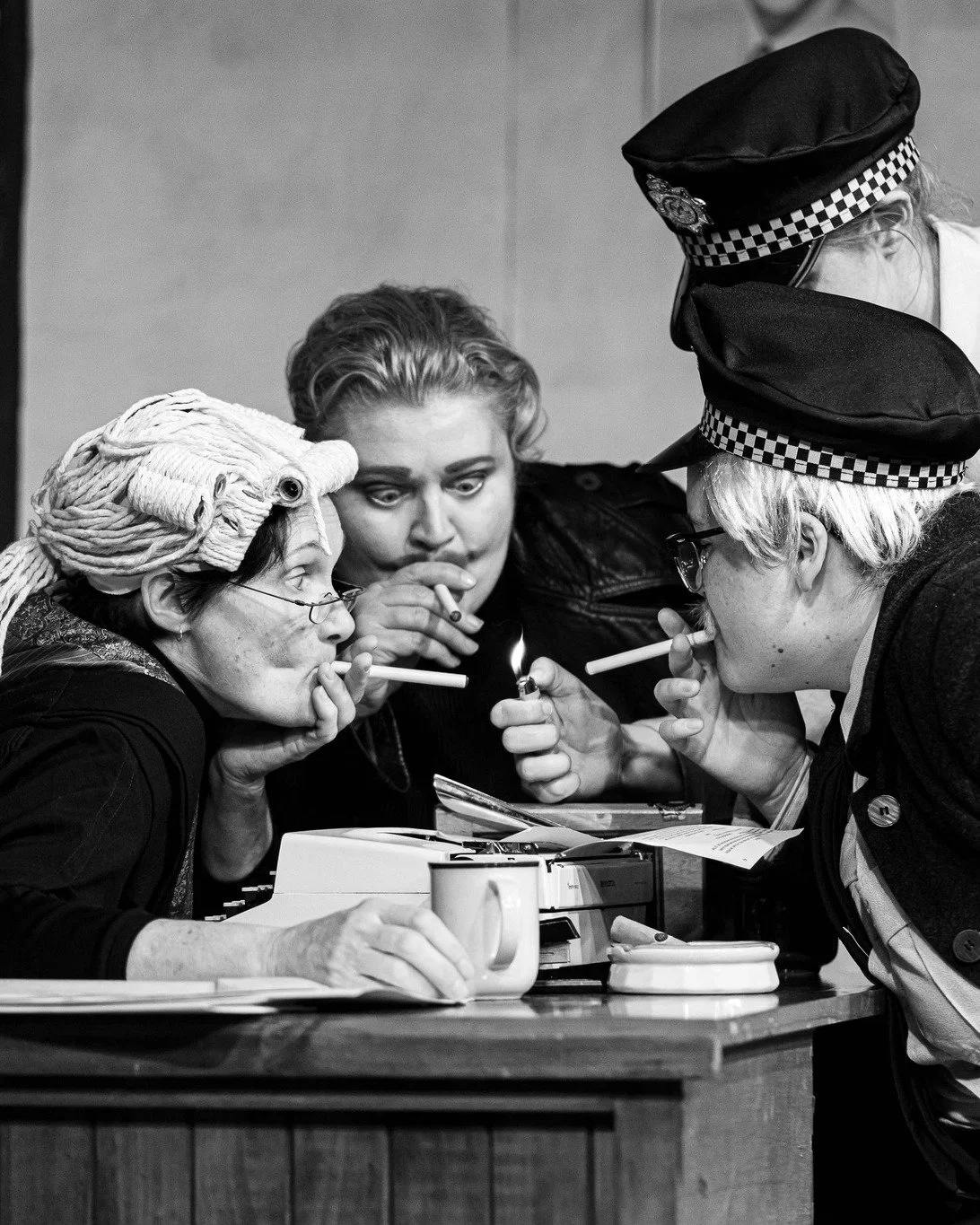Accidental Death of an Anarchist | PIP Theatre
Image Credit: Jade Ellis Photography
When I first heard that PIP Theatre were doing an adaptation of Dario Fo’s Accidental Death of an Anarchist set in Bjelke-Petersen-era Brisbane, I was stoked. As a fan of the original play and someone who knows the history of Pig City, I was shocked that the idea hadn’t been scooped up sooner—it seemed like a perfect match. So, it is with a very heavy heart that I say I did not like PIP’s Accidental Death of an Anarchist very much at all.
Acting less as a true translation and more of a localisation, PIP’s Accidental Death of an Anarchist reminded me of Trent Dalton’s Love Stories (walk with me here)—it felt like the hometown quality of it acted more as a “Hey, I remember that!” generator than a thoughtful choice. The references to Brisbane, both culturally and historically, neither added meaningfully to the narrative, nor created a bold enough spin on Fo’s original work to justify such huge edits.
From a technical perspective, everything was executed extraordinarily well, as I have come to expect from PIP Theatre. The set, light, and sound design were all excellent, and at a much higher standard than one would expect from a production of this scale. I particularly enjoyed the themed decoration of the foyer, full of clipped news articles and local music references.
While its choice to shift location may not work for me, PIP Theatre’s Accidental Death of an Anarchist is, if nothing else, fun. It’s a-joke-a-minute, darting between physical comedy, panto-style broad comedy, and wry humour. Of particular note were Rebel Star as Superintendent Biscoff and Izabela Wasilewska as Detective Hallaran, whose ability to navigate the full spectrum of performance astounded me. Unfortunately, however, the patchwork nature of Accidental Death of an Anarchist’s comedy made it feel like the actors were competing for attention. Moments of physical comedy happening in the background of important character beats, lagged endings to bits due to improvised lines, and line deliveries that at times felt like someone was yelling directly at me weren’t frequent enough to detract from the performances fully, but still left me feeling like I was missing something. The play is almost entirely cross-cast, and while some actors were inhabiting a much more playful, drag-like archetype, one character was played in a more conventional “laugh at the man in the dress” manner. Far be it from me to critique crossdressing in theatre (it is, after all, where it all started in the western tradition), but it was the combination of these inconsistent performances with two out of the blue non-binary jokes that started to make me feel as if the performance was less in good fun with its depictions of gender, and more mean spirited.
Image Credit: PIF Productions
A quick aside: from this point forwards, spoilers regarding the contents of the show will be discussed. While I wouldn’t normally recount the ending of a show in a review, I feel that it is necessary to do so when discussing my feelings towards the changes that PIP Theatre’s production made in adapting Dario Fo’s original text.
The aspect I find the most difficult to contend with when it comes to this production is its ending. Gone is Fo’s original double ending, in which the Maniac breaks the fourth wall to present the harsh realities of the law in a corrupt system, leaving audiences to determine whether following the law can ever truly lead to a moral victory. Instead, the work now ends bluntly with the Maniac being choked to death in an act of police brutality, followed by a graphic showing the statistics for Aboriginal deaths in custody following the Royal Commission in 1987. While I recognise the instinct to include these statistics, for a work ostensibly set before the Royal Commission, that doesn’t mention indigeneity at any point other than its penultimate monologue, the choice felt thin. Additionally, the decision to have this number “drop” from the window that our titular anarchist is pushed out of felt gauche and borderline offensive. It felt like the dry irony of the original was lost in pursuit of a more clearly communicated message, but this message was lost in translation for me.
Overall, Accidental Death of an Anarchist left me wanting more—it came close to being something truly special, but never quite threaded that needle. While this localisation didn’t work for me, I look forward to eventually seeing another production willing to take a stab at setting Dario Fo’s classic in the Sunshine State.

